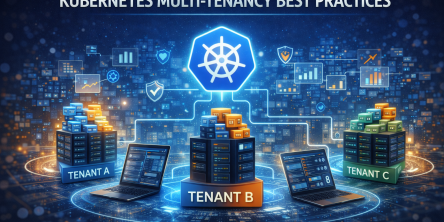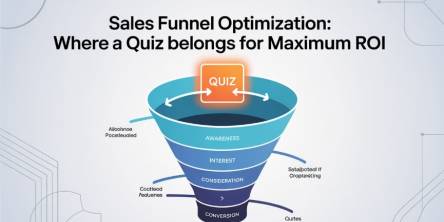Integrating Machine Learning with Cloud Platforms

The human learning capability is a great resource for helping technology evolve and grow, breaking boundaries, and creating new ones. Emulating the ability of humans to learn at a gradual but retentive pace, Machine Learning is the latest power monster that is redefining human-machine interaction.
A subset of Artificial Intelligence, Machine Learning (ML) is the current pervasive force that is responsible for making chatbots speak, cars be self-driven, OTT platforms recommend shows to users, and many more innovative trends that are the subject of most conversations around technology.
Businesses leverage the immense capability of Machine Learning to generate predictive analytics for defining their strategies and optimizing their customer engagement. Many also integrate cloud telephony systems to streamline communication and enhance customer interactions.
Revolutionizing the way organizations, and the world at large, think, act, and reap benefits is no mean feat. It involves training ML models to generate the desired results.
ML Models are learned representations of the patterns and relationships that exist within a dataset. They are trained on data that is collected and processed to help them make predictive analyses of new data.
All this involves a huge number of resources in the form of data, computing power, memory, and storage, infrastructure. As organizations find it difficult to arrange the overhead costs and the time to create the training base for the ML models in-house, they, therefore, seek the support of Cloud Platforms to tide through this problem.
Cloud Platforms for Machine Learning Development Service
Cloud Platforms are an ideal option to help businesses train their ML models. Integrating Machine learning Development Services with Cloud Platforms helps in developing a scalable, accessible, and cost-efficient ML model.
Cloud Platforms help organizations utilize the benefits that are embedded in the Cloud DNA to enhance their Machine Learning Development services. Some of the benefits leveraged from the Cloud Platforms in developing machine learning models include:
Reduced cost in infrastructure management
As Cloud Platforms manage all infrastructure configurations, Machine learning engineers and Data Scientists can focus on building ML models that generate the ideal predictions and insights to increase business relevance.
Increased speed and agility in the provisioning of resources and deployment
Cloud Platforms with access to resources enable organizations to quickly deployment of ML models. This helps businesses to cater to the dynamic market conditions by innovating models that can accommodate and are aligned to these changes.
Low latency owing to global reach
Data centers for cloud platforms are usually spread across geographies. This helps ML models, built for applications that provide real-time responses, provide low latency access to users for predictions and recommendations.
Enhanced Collaboration
Machine Learning Engineers, Data Scientists, and AI experts often use the collaboration tools and version control software provided by cloud platforms like Trello, Asana, Jira, Notion, and many more to communicate and collaborate within teams while working on Machine Learning projects. Additionally, AI forecasting can be utilized alongside these tools to predict project timelines and resource needs.
Preferred Cloud Platforms for Machine Learning
As the world adapts to the evolution of technology at a rapid pace, an increasing number of cloud platforms are emerging to facilitate the growth of machine learning.
Every platform, though beneficial to ML models in helping generate better business intelligence also suffers from constraints. It makes sense to develop an in-depth understanding of the platform before proceeding with any Machine Learning Development Services.
Amazon Web Services (AWS)
Amazon Sagemaker – Builds, trains, and manages ML models.
AWS Lambda – Provides serverless computing for on-demand deployment of ML models.
Amazon Rekognition – Facilitates Video and Image analysis.
Pros
AWS has a rich ecosystem comprising a large and active AWS community, third-party tools, and services that help simplify integration and customizations.
It provides comprehensive machine learning and AI services that make it an ideal option for building primarily data-driven business applications.
Cons
AWS offers quite a complicated pricing structure which poses a challenge in estimations.
AWS makes data transfer an expensive affair. This makes it difficult to plan ML models which usually work with a high volume of data transfer.
Microsoft Azure
Azure Machine Learning - Provides end-to-end Machine Learning
Azure Data Bricks - An analytics platform for AI and Big Data. It is based on Apache Spark.
Azure Cognitive Services – Comprises API for critical aspects like speech recognition, natural language processing, and computer vision.
Pros
One of the biggest advantages of Microsoft Azure is its seamless integration with all other Microsoft products like Windows Server, Active Directory, and Office 365. This facilitates the ease of adoption for organizations who are already using Microsoft products.
Azure provides Organizations with the benefit of Hybrid cloud capabilities. It helps all businesses who are working with legacy systems to sync their existing on-premises systems with Cloud facilities.
Cons
Azure has a steep learning curve owing to its complex service offerings.
Azure entails expensive support costs. The steep learning curve may also lead most organizations to enlist for technical support which might increase the costs further.
Tencent Cloud
AI Platform – Provides Machine Learning services and tools.
Pros
Tencent Cloud provides a wide range of AI and machine learning services, which include natural language processing, computer vision, and speech recognition.
The competitive pricing that Tencent Cloud offers makes it extremely cost-effective for most businesses.
Cons
Most of Tencent Cloud’s documentation and customer support services are available in Mandarin which may impede audiences not conversant with the language.
Tencent Cloud may pose data sovereignty issues with people residing outside China.
Roadblocks and Bottlenecks
Every technological innovation is beset with challenges that if not addressed may impede its potential to deliver results. Integrating machine learning development services with Cloud Platform is also not without its fair share of concerns.
With so many options available to choose from, it might become difficult to decide which Cloud Platform is best suited for a specific Machine Learning Development Service. Opting for an incorrect or inappropriate choice may result in inaccurate results, poor ROI, and a failed Machine Learning initiative.
Integrating data from multiple sources in a cloud platform may pose issues and concerns owing to the varied formats and sources it is received from. Also, you need to ensure the quality of data. Missing values, duplicates, or inconsistencies must be sorted out at the time of integration.
Vendor Lock-in clauses may prove another stumbling block for organizations. Most cloud Platforms use unique APIs and Services which makes it difficult for businesses to make changes in their cloud vendors. Any change may include substantial modifications and adaptations which may be a hindrance to their growth.
A heterogeneous infrastructure such as is often used for ML models may complicate efficient management, particularly in a hybrid cloud setup.
Towards Tomorrow
Despite some of its obvious challenges, the integration of machine learning development services with Cloud platforms is revolutionizing business operations. By utilizing the best attributes of technology innovations like Cloud and Machine Learning organizations are evolving with better strategies and enhanced efficiencies. Some of the innovative future-facing trends that are based on this integration include:
Federated Learning
This machine-learning approach allows models to be trained across multiple decentralized devices or data sources. It does this without centralizing data thereby addressing all concerns of privacy issues.
Edge AI
Cloud providers enable the deployment of machine learning models on IoT devices and edge servers.
AI/ML Marketplace
Marketplaces for AI and ML solutions are created by Cloud providers. This allows users to access and deploy pre-built models and solutions, thereby accelerating the development process.
Similar Articles
We live in the age of cloud computing. That's plain to see. However, what may escape many are the operational and financial challenges of managing multiple independent clusters.
Times have changed and how! Take modern technology and the fast-paced digital economy, it is driving. Given the market conditions, any company's infrastructure has become more than just a technical detail.
It has been for everyone to see that the modern digital economy is distinguished by high volume, real-time financial transactions.
Business success has become reliant on efficiency and agility of the underlying technology infrastructure. Clearly, companies now depend on cloud computing to provide seamless services while managing exponential data growth.
Hospitals operate in environments where availability and patient safety are paramount at all times. As medical supply chains expand and regulatory oversight becomes more demanding, manual tracking methods introduce delays and risk.
Every sales funnel has one core goal: turn attention into revenue as efficiently as possible. Yet many funnels leak value at critical stages—visitors bounce, leads go cold, and sales teams chase prospects who were never a good fit.
Decentralized Finance (DeFi) has transformed how users earn passive income through blockchain-based financial systems. Among its most popular use cases,
Staying organized can feel like a full-time job. Between meetings, deadlines, and personal commitments, it’s easy to get overwhelmed.
Choosing the right GIS mapping software depends on what you need to accomplish. Some platforms cater to developers who want to build custom applications from scratch.









